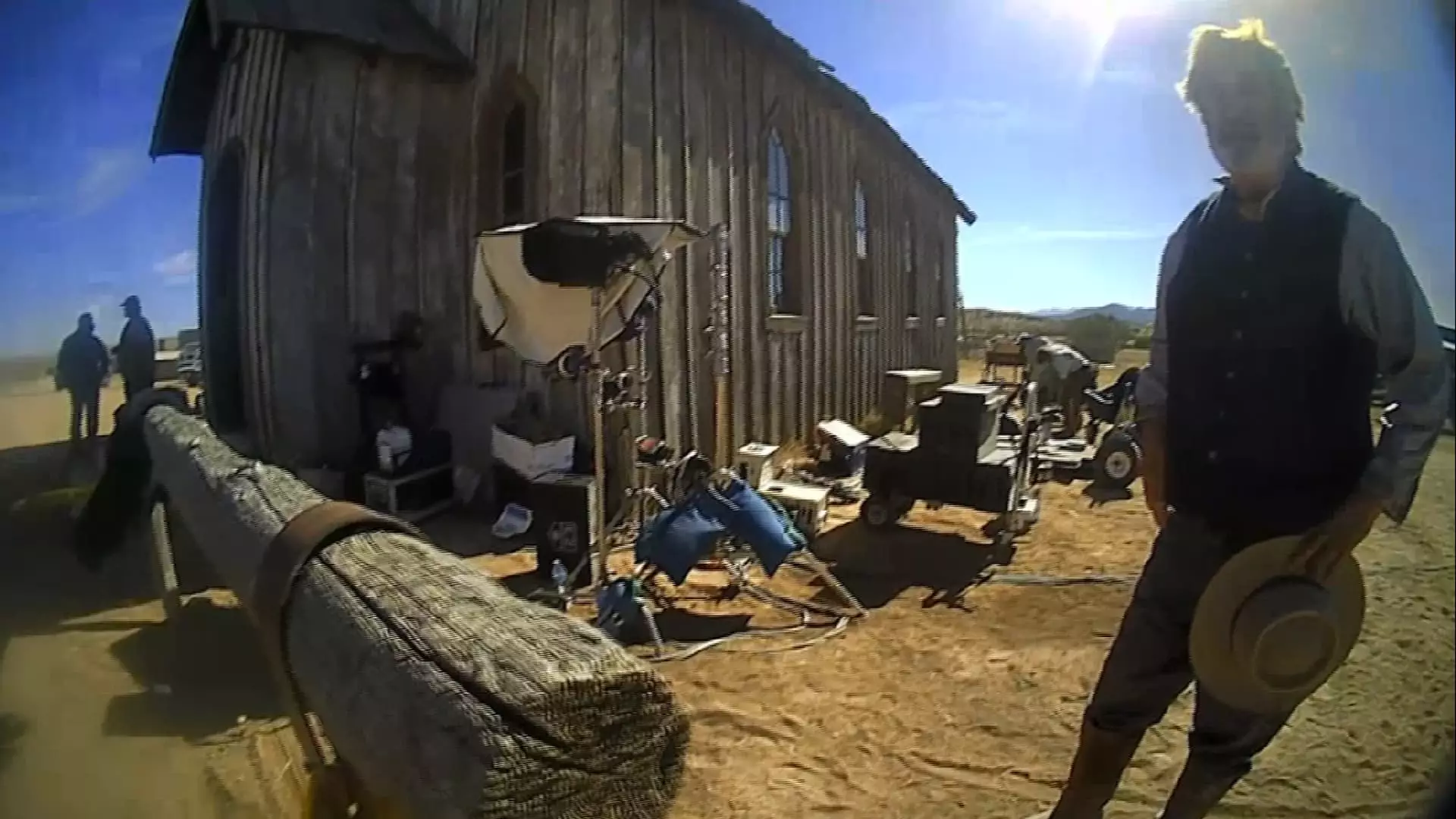Three years have passed since a tragic incident on the set of “Rust,” where the world lost talented cinematographer Halyna Hutchins to a gunshot fired by actor Alec Baldwin. This unfortunate event, which unfolded in October 2021, raised profound questions about safety protocols in film production and the responsibilities of those handling firearms on set. As the film is poised for its world premiere at the esteemed Camerimage Festival in Toruń, Poland, the atmosphere is imbued with a sense of somber introspection.
The circumstances surrounding Hutchins’ death remain a painful focal point. Court records indicate that Baldwin was given a loaded firearm by an assistant director, who assured him of its safety. This lapse in communication and procedure not only claimed a life but also ignited an avalanche of legal scrutiny. Baldwin faced two attempts to charge him with involuntary manslaughter, both of which were ultimately dismissed under dubious legal conditions. The fallout from this incident reflects not only on Baldwin but also on the entire industry, as it grapples with systemic failings that led to this catastrophic event.
The armorer, Hannah Gutierrez-Reed, whose responsibilities included overseeing all firearms and blank ammunition, has herself faced severe legal repercussions. She was convicted of involuntary manslaughter in March and is currently serving an 18-month prison sentence. This raises a crucial dialogue about accountability in film production. The tragic consequences of Hutchins’ death might have catalyzed a shift in how responsibility is distributed amongst crew members, particularly regarding safety protocols involving weapons.
Even amidst the legal entanglements, Gutierrez-Reed’s defense has attempted to navigate the turbulent waters following Baldwin’s mistrial, yet their latest motion was also denied. This illustrates the complexities of law intertwined with the unpredictability of human judgment and the dire outcomes that may stem from errors in a high-pressure environment.
The upcoming Camerimage Festival is not merely a platform to showcase “Rust”—it serves as a poignant memorial for Hutchins and a space for open discussions regarding safety in cinematography. To honor Hutchins’ memory, the festival organizers have planned a panel discussion featuring director Joel Souza, who was injured in the incident, alongside industry professionals. This deliberate inclusion reinforces the event’s commitment to addressing the critical issues surrounding safety on set. It is a chance to bring forth the conversations that need to happen in order to prevent future tragedies.
Marek Zydowicz, the Festival Director, expressed the profound connection that Hutchins had with the festival, stating that her passion for cinematography resonated deeply with its mission. The festival’s tribute, including a moment of silence, poignantly reflects a collective industry grief while also urging all involved to take a hard look at the glaring safety failures exposed by this incident.
As the Camerimage Festival approaches, the film industry stands at a crossroads. The tragic events surrounding “Rust” have sparked a renewed call for reform and stricter safety measures, one that insists on systemic changes to prevent further loss of life. The discussions at the festival will not only serve as a reminder of Hutchins’ legacy but as a critical step towards making the film industry a safer place for all. In commemorating what was lost, the industry must also look to a future where the wellbeing of its crew is paramount, ensuring that art is never again overshadowed by tragedy.

